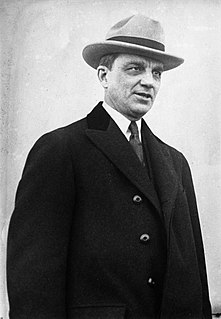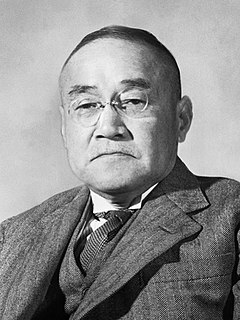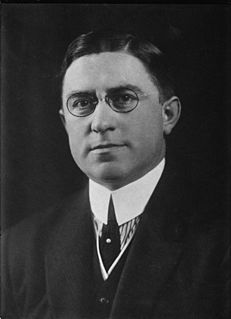A Quote by Arancha Gonzalez
It has been proven through studies by the World Bank and others that companies participating in international trade are more competitive.
Related Quotes
We wake up to find the whole world building competitive trade barriers, just as we found it a few years ago building competitive armaments. We are trying to reduce armaments to preserve the world's solvency. We shall have to reduce competitive trade barriers to preserve the world's sanity. As between the two, trade barriers are more destructive than armaments and more threatening to the peace of the world.
In a world dependent on international trade and commerce, and staggering under a heavy load of international debt, no policy is more destructive than protectionism. It cuts off markets, eliminates trade, causes unemployment in the export industries all over the world, depresses the prices of export commodities, especially farm products of the United States. It is the crowning folly of government intervention.
We Canadians need to go beyond what any previous government has done in terms of our diplomatic network, our support for companies to export, trade and invest beyond North America, and our contribution to the safety of the international system, through defence, development, international organizations, and so forth.
The World Trade Organization, The World Bank, The International Monetary Fund and other financial institutions virtually write economic policy and parliamentary legislation. With a deadly combination of arrogance and ruthlessness, they take their sledgehammers to fragile, interdependent, historically complex societies and devastate them, all under the fluttering banner of 'reform'.
The Federal Reserve Bank of New York is eager to enter into close relationship with the Bank for International Settlements....The conclusion is impossible to escape that the State and Treasury Departments are willing to pool the banking system of Europe and America, setting up a world financial power independent of and above the Government of the United States....The United States under present conditions will be transformed from the most active of manufacturing nations into a consuming and importing nation with a balance of trade against it.
The World Bank is the monopoly provider of poverty data and, partly due to a leadership change there, the World Bank's reporting has been heavily on the rosy side since about 2000. The Bank's cultivation of an upbeat picture affords a very interesting lesson in statistics and how you can, depending on which numbers you present and how you present them, create a more positive or more negative impression of the evolution of poverty.





































